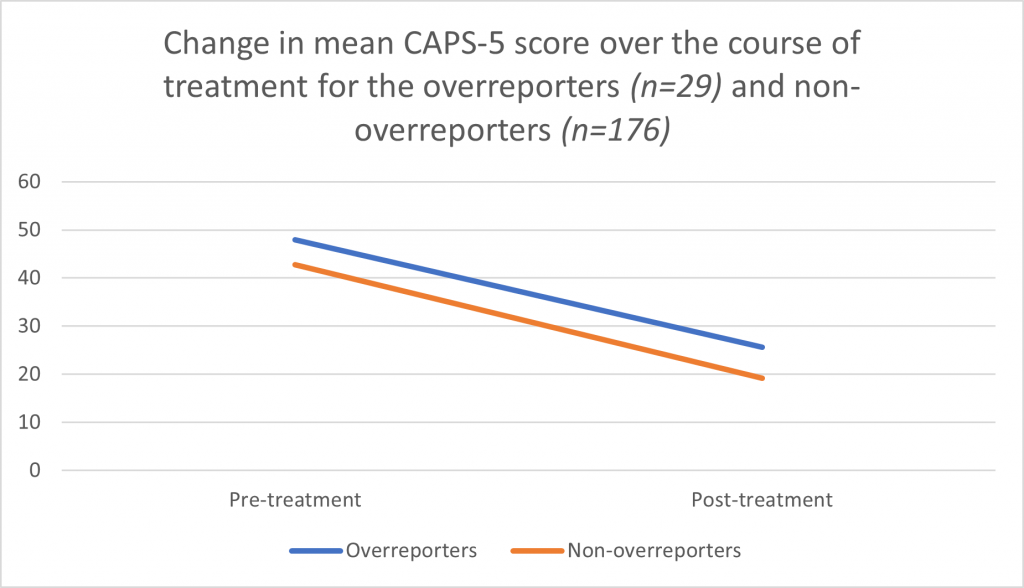To think that your client might be over reporting their symptoms may be sacrilege on many fronts for a therapist. van Minnen (2020) examined this potentially controversial area. They described that the assumption that clients are malingering or that somehow their overreporting would be a barrier to treatment has resulted in individuals with posttraumatic stress disorder (PTSD) who overreport their symptoms being excluded from trauma-focused treatments. They examined 205 individuals with PTSD who participated in an intensive trauma-focused treatment programme. The assessments they used included the Structured Inventory of Malingered Symptomatology (SIMS) and the Clinician Administered PTSD Scale for DSM-5 (CAPS-5).
They had some interesting results. They found that in their treatment-seeking population, 14.1% patients overreported their symptoms. However they also found that that the patients who overreported their symptoms showed good treatment results with large effect sizes. Moreover, these treatment results did not differ significantly from other patients, who did not overreport. They also found that in the group of overreporters, symptom overreporting scores declined significantly from pre- to posttreatment, as shown in the graph below.

van Minnen et al. (2020) reported that 35% of the symptom overreporters, continued to overreport their symptoms at post-treatment (as measured by the SIMS). They proposed that these patients may have been malingerers. They also highlighted that, although the treatment effects were lower than those of patients who did not continue to overreport their symptoms at post-treatment, these presumed malingerers also showed large treatment effects. Pre and Post treatment effects can be seen in the graph below.

Patients who malinger are assumed to have external motives for pretending to have the diagnosis PTSD, and therefore it is not likely that they would respond to treatment. However, this study does not support that premise. van Minnen et al. (2020) suggested that symptom overreporting may be caused by overlapping PTSD symptoms, or to inattentive responding due to genuine PTSD-symptoms (or co-morbid symptoms).
Summary
van Minnen et al. (2020) concluded that the results of their study suggest that an intensive trauma-focused treatment not only is a feasible and safe treatment for PTSD in general, but also for individuals who overreport their symptoms. Food for thought when we have a highly distressed and “treatment resistant” client in front of us.
Reference
Agnes van Minnen , Birgit van Dalen , Eline M. Voorendonk , Anouk Wagenmans & Ad de Jongh (2020) The effects of symptom overreporting on PTSD treatment outcome, European Journal of Psychotraumatology, 11:1, 1794729, DOI:
10.1080/20008198.2020.1794729



